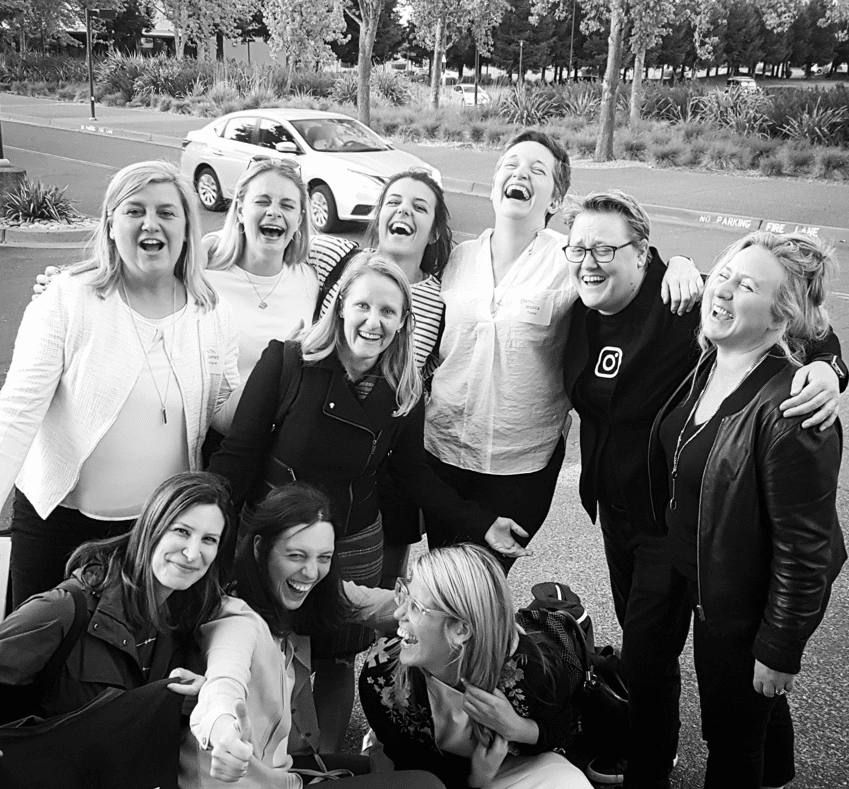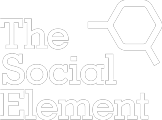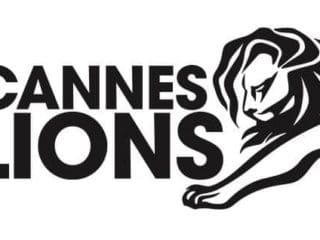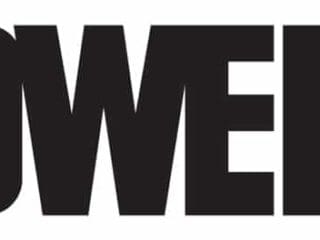Back in May, I had the great privilege of being one of 15 female business founders invited on a trade mission to Silicon Valley. It was run by the Mayor of London’s office, part of a series of events to promote successful, growing businesses from the UK, and to position London (where our HQ is) as a hub of innovation and enterprise.

Around 50% of our business comes from the US, and we work with some of the biggest brands on both sides of the Atlantic. I spend a lot of time there, and have a fantastic team everywhere from LA to New York. I was proud to be representing the UK’s business community in a market that I’ve come to know so well.
It was an incredible experience. I met people who had a real impact on my business, and some that I feel sure will impact it in the future too. It was inspiring to visit some of the social media giants that we work with every day: Facebook, Google, Instagram; and to talk to other founders about their experiences of growing businesses both sides of the Atlantic.
As is always the way when you run your own business, time is precious. I’ve been meaning to share my thoughts on this trip for about 6 weeks now but agency life got in the way.
But now that time has passed, I can reflect on the things that made a lasting impression on me.
Celebrating success – and failure
I was struck by how positive and supportive everyone was in the trade mission to Silicon Valley. Success is infectious, and spending time surrounded by people who are inspiring and excited about their businesses was incredibly powerful.
Of course, we shared our successes. But we talked about celebrating failure, too – something that is done a lot in Silicon Valley. Most people who’ve succeeded in business have a failure somewhere in their past. That’s something to be proud of. The only way you never fail is if you never innovate, or try something new.
Kill criteria
I learned from Google X about its blue sky projects and also about its ‘Kill Criteria’, knowing when to kill a project. Google X is the not so secret research and development facility that uses technology to solve some of the world’s hardest problems. I geeked out exploring the world of driverless cars, and hot air balloons designed to bring internet access to remote corners of the world. All that innovation means hundreds of new projects – not all of which will succeed.
So right at the beginning of a project, Google X sets measurable objectives and milestones that everyone agrees to. If the project doesn’t meet the objectives in the timeline agreed, it is killed. It’s that simple. And because everyone signed up to it, it makes it easier to accept. Obi Felton, who has the fabulous title of Head of Moonshots for Google X, told us that she compares killing off a project to the stages of grief. We all get emotionally attached to something we’ve created, and find it hard to let go. By setting the kill criteria up front, people don’t get stuck in the denial phase, and move on to acceptance more easily. They can then start working on other projects and not double down on a bad strategy.
Being ambitious: OKRs
Google has been using a system of OKRs (Objectives and Key Results) since its very early days. It sets ambitious objectives that are designed not to be easy to achieve, so they stretch people. OKRs are all about an individual’s contribution to the company goals, rather than a personal review. They are all public, so everyone knows what everyone else is working on.
What I found interesting is that Google grades the results from 0-1.0. The optimum grade isn’t a 1.0, but around 0.6-0.7. The thinking is that goals should be hard. They shouldn’t let you sit still. If someone consistently scores at 1.0, their goals aren’t ambitious enough. (For more information on this, see the Business Insider article on it).
Taking time out
We visited Calm, the meditation app which was App of the Year last year and was founded by Michael Acton-Smith and Alex Tew. I knew Michael and worked with him when he ran Moshi Monsters. It was great to hear his entrepreneur journey with Alex, including successes and failures. Before they talked to us, we had a meditation session, of course! It’s inspired me to take more time out to breathe and to think, and I’m looking at how I can bring in meditation to my team.
In conclusion…
Taking time out to learn and be inspired was one of the reasons for the trade mission to Silicon Valley. It was an honour to meet some of my tech heroes and hear about their journeys and experiences. The list was incredible and included Nicola Mendelsohn from Facebook; Marne Levine from Instagram; Xochi Birch, co-Founder of Bebo, the Battery and Monkey Inferno; Julie Hanna, Chair of Kiva, serial entrepreneur and global Ambassador for entrepreneurship under the Obama administration; Cal Henderson co-Founder of Slack; and Aaron Levie the Founder of Box, to name a few.
There’s so much to learn, and it was amazing to be surrounded by such an inspiring group of female founders. We’ve all stayed in touch, and give each other advice and support. I came home incredibly proud of my hometown, and feeling refreshed and optimistic about the businesses coming out of London.
![]()
The full list of founders who were part of the trade mission to Silicon Valley:
– Abigail Rappoport, CEO, Emoquo
– Anne McNamara, co-founder & CEO, Shine Bid
– Darina Garland, co-founder & chief experience officer, Uuni
– Devika Wood, founder & CEO, Vida
– Ella Goldner, co-founder and general manager, Zinc
– Harmeen Birk, co-founder & director, Zenkai Consulting,
– Hellen Bowey, co-founder & CEO, Alcove
– Jessica Taylor, managing director, Preloaded
– Joanne Smith, founder & Group CEO, Recordsure & TCC
– Lucy Stonehill, founder & CEO, BridgeU
– Merilee Karr, founder & CEO, UnderTheDoormat Ltd
– Paloma Strelitz, co-founder & partner, Assemble
– Dr Sheri Jacobson, founder & CEO, Harley Therapy Ltd
– Tamara Littleton, founder & CEO, The Social Element
– Pip Jamieson, founder and CEO of The Dots Global
Herding and hosting skills were provided by Janet Coyle and Evie Griffin from London & Partners, Nicole Lowe from KPMG, Jaclyn Mason the Consul and Head of Trade & Investment at Department for International Trade and the indomitable Oli Barrett, Director of The Connector Unit.
For more information on the trade mission to Silicon Valley, see http://gotogrow.london/insight-and-case-studies/female-founders-2018.




